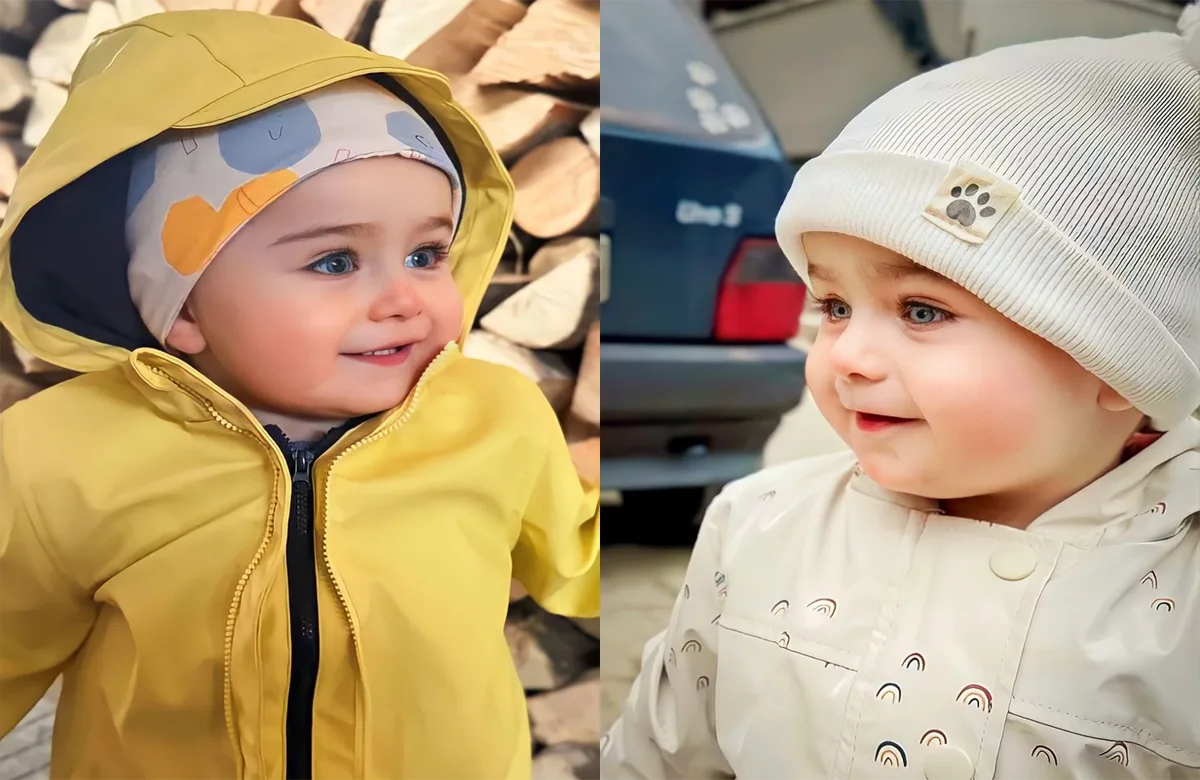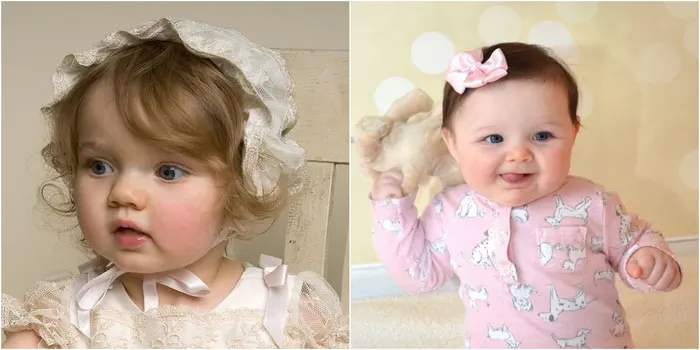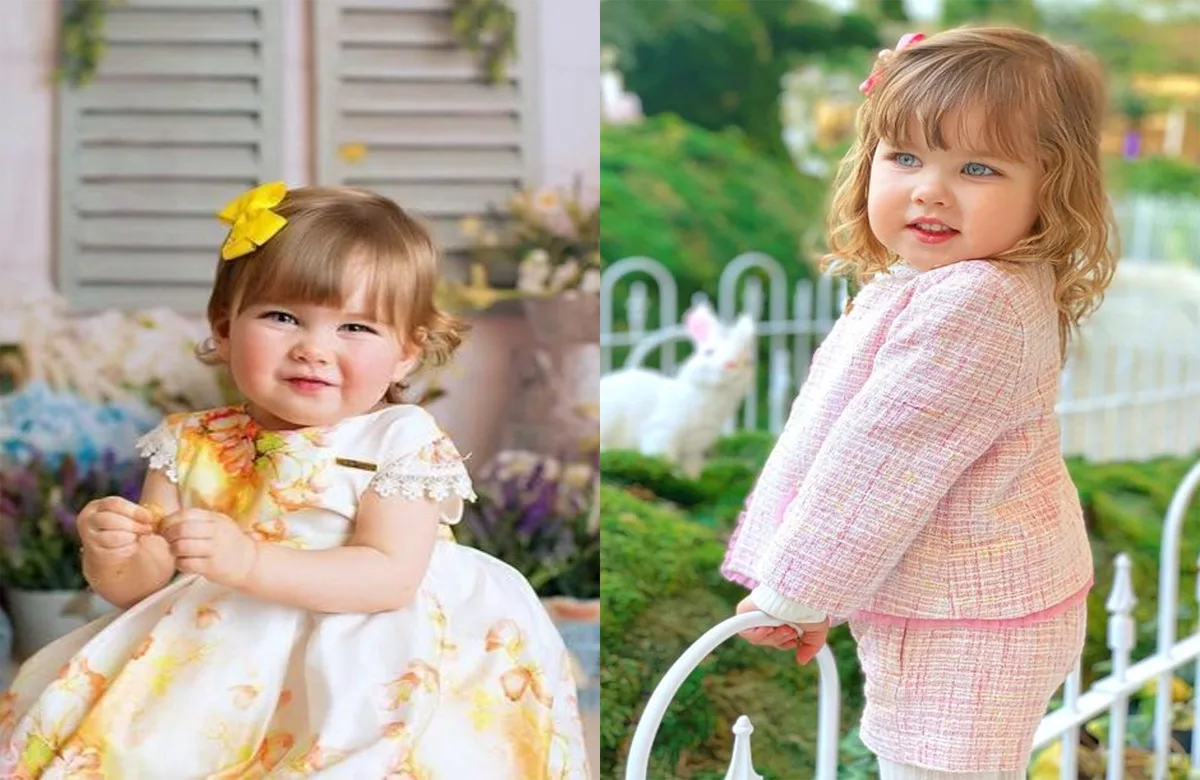A baby is sitting on the floor in a brightly lit, comfortable living room, surrounded by bright toys and cheery décor. The child is discovering the world in a way that only newborns can, with wide eyes and an inquisitive mind. Everything is fresh, intriguing, and deserving of notice. But on this specific day, the infant’s attention is drawn to an unexpected object—a commonplace, unremarkable object that appears to possess no exceptional features at all.
A moment of pure ecstasy ignites as the baby’s gaze rests on an ordinary kitchen spatula that is laying innocently on the floor. A fantastic reaction that makes the entire room chuckle comes next. The infant erupts into uncontrollably contagious chuckles, making everyone in the vicinity grin. The pure delight of childhood innocence is embodied in the spontaneous and unrestrained laughter.

The infant goes for the spatula, holding onto it with small fingers, and every laugh seems to reverberate throughout the space. What was meant to be used for flipping pancakes and rotating vegetables has become a huge source of amusement. The ridiculousness of the situation heightens the humour as the baby waves the spatula in the air. Who would have thought that something so basic could make someone happy?
The family members close notice the laughter as it keeps on. As they watch this endearing moment play out, they can’t help but wonder how something so insignificant can cause such a deep emotional reaction. Parents are frequently in awe of their child’s capacity to discover happiness in the unlikeliest of settings. It serves as a reminder to children to cherish life’s little pleasures, which adults frequently miss out on due to their hectic schedules.
The baby’s face brightens with delight as the laughter reverberate throughout the house, changing from a perplexed onlooker to an engaged participant in the happiness of the moment. The spatula has clearly taken on a life of its own, changing into a wonderful wand of joy and laughter with each wiggle and squeak. It appears as though everyone has stopped to appreciate the wonder of unstructured childhood.
The infant’s laughing is not merely a response; rather, it is a statement of unadulterated joy, unadulterated by the complications of growing up. Adults typically have a life full with obligations, anxieties, and the weight of the entire world. But even something as basic as a spatula can bring this baby happiness. It serves as a kind reminder to pause, observe, and be grateful for all of life’s small pleasures.
Family members join in on the laughter, acting out the baby’s enthusiasm and even touching the spatula. This light-hearted conversation strengthens their relationship by fostering a warm and supportive environment. Everyone is reminded of the delight that comes from being present, living in the moment, and just appreciating life’s small pleasures when they laugh together, which is one of laughter’s special powers.
After a while, the laughter stops, but the happiness doesn’t. The infant, who is now more at ease, shows renewed interest in the spatula. It’s more than just a tool—rather, it’s an expansion of a happy moment that will be remembered for years to come. This small moment perfectly encapsulates pleasure in a society that frequently emphasises the spectacular: finding delight in the commonplace.
The baby will probably move on to new toys and adventures as the day goes on, but the memory of this interaction filled with laughing will never go away. For all those concerned, it’s a lovely reminder that pleasure can be found in the most unlikely locations. Opportunities for delight abound in life, whether it’s through the use of a spatula, a cardboard box, or a straightforward game of peek-a-boo, if one is open to seizing them.
In conclusion, a baby’s fit of irrepressible laughter at the most insignificant thing is a celebration of the joy and simplicity of life, not merely a nice moment. It emphasises how important it is to find joy in the little things in life and exhorts everyone to do so. Adults may learn from this baby and remind themselves to stop, observe, and most importantly, laugh while they manage their hectic schedules and complicated lives.





Leave a comment